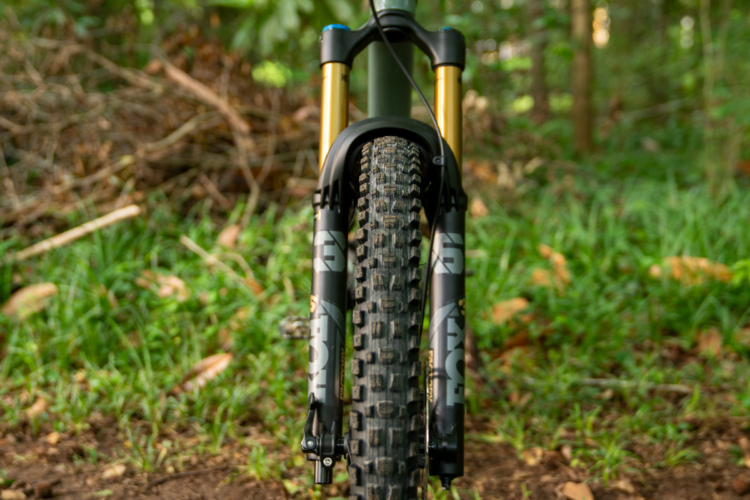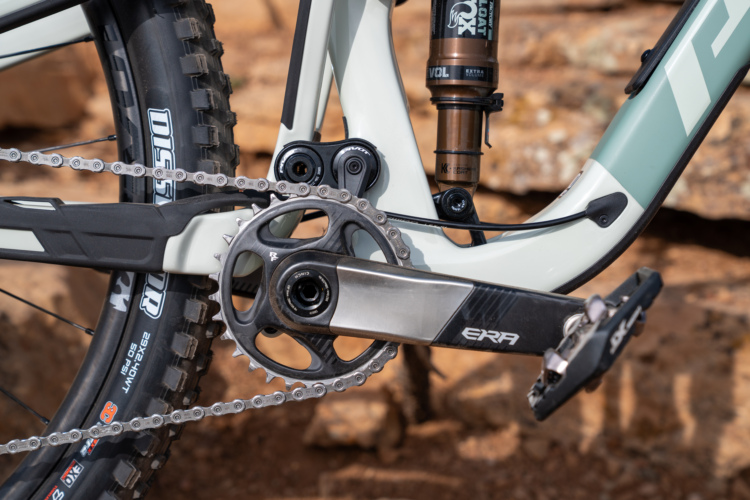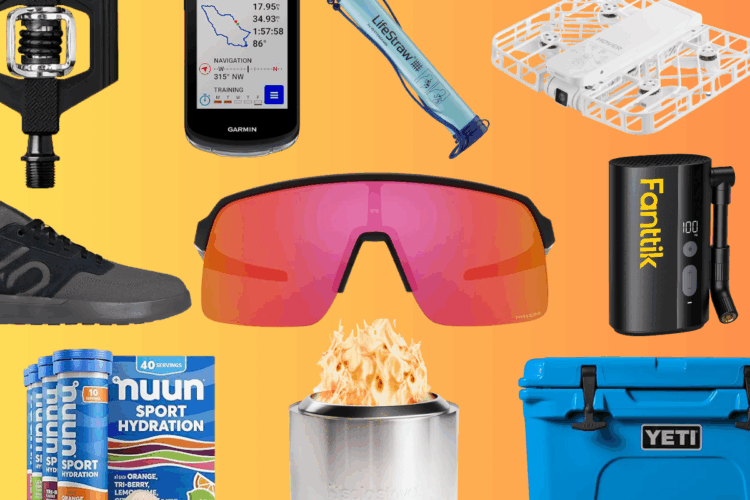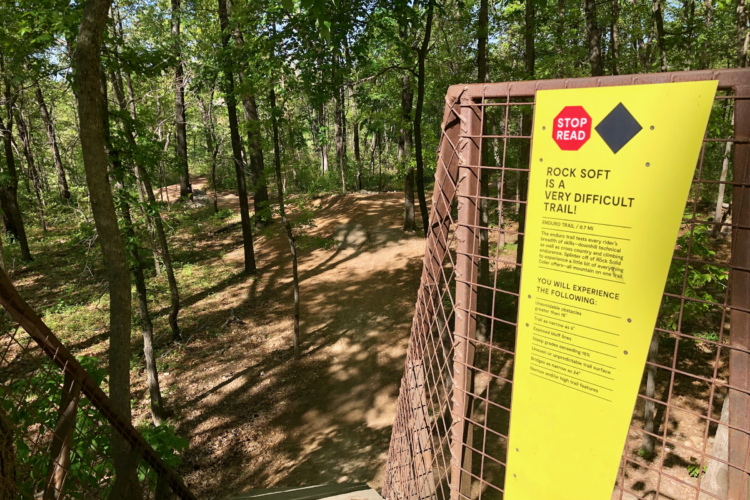
Mountain bike disc brake rotors are one of the most “set and forget” components on a bike. Usually, rotors come with the bike and riders won’t ever have to think about them again, unless they are severely bent or when it’s time to replace the brake system with a new one.
But ride a bike long enough (or hard enough) and nothing lasts forever. Eventually you might find the rotors aren’t stopping how they used to or are getting too hot sooner than they did. Then, you might want to grab a new set.
To get an idea of what to look out for on your brake rotors, I reached out to Hope Components and design engineer Sam Gibbs helped us out with a few questions.

Is your rotor worn too much?
For a long time, brake rotors came in one thickness: 1.8mm. Now they come in a 2.3mm thickness too, at least for TRP and SRAM rotors.
Hope has their limits at about a third of a millimeter for when it’s time to replace. On a 2.3mm rotor, like a TRP, their stated minimum thickness is 1.8mm.
“We state a 1.5mm minimum thickness for our (1.8mm) rotors. This will vary for different manufacturers and material,” said Gibbs.
What happens when a rotor shouldn’t be used anymore? Gibbs said it could result in a catastrophic failure. “Basically if it’s too thin, the material won’t be strong enough to handle the forces involved.”

What wears mountain bike brake rotors down?
There are quite a few variables that can contribute to the surface erosion of your brake rotor, says Gibbs, like “how often and aggressively the brakes are used but also quality of manufacture, pad compound choice, maintenance routine and local environmental factors can play their part. For our rotors they typically last years rather than months.”
My rotors are noisy. Do they need to be replaced?
Mountain bike brakes make noise for a lot of different reasons, but it’s generally not because the rotors need to be replaced, Gibbs says.
“[The] causes of brake noise/squeal can be very hard to diagnose. In our experience noise is generally caused by poor alignment, or glazing or contamination, but if rotors have worn thin, warped or have uneven wear they can all cause noise.”
If your brakes are very noisy but not too worn, check out this article.
Should I replace my brake rotor if it is contaminated?
When it comes to brake pads, if they have been soaked or sprayed with brake fluid, it usually means you’ll have to replace them. Rotors however are a different story.
“You should be able to clean the rotor in most cases,” said Gibbs. “The pads will almost certainly need replacing. In extreme cases (rotor left in oil for months/years) you will probably have to replace the rotor as well. Quite often contamination goes hand in hand with pad/rotor glazing due to the increased heat generated by poorly performing brakes. Glazed rotors will need an extended re-bedding in process before good friction performance is restored.”
If your rotors have become contaminated, you’ll want to clean them well with a fresh rag and plenty of isopropyl alcohol.

My brake rotor is discolored after some heavy riding time. Should I replace it?
Gibbs explained that discoloration is a sign of extreme heat and if your rotor has reached those high temps, it might appear blue or purple in some areas. This could mean your brake system as a whole is getting too hot, but he also notes that sudden changes in the rotor’s temperature could place a lot of stress on the rotor and cause warping and cracking. These sudden changes, say dipping into a creek crossing after a big descent, or spraying water from your bottle onto the rotors, should be avoided. But, some discoloration doesn’t necessarily mean it’s time to for a new one.
“If the rotor still runs straight and isn’t heavily glazed or worn thin or uneven then there shouldn’t be reason to replace it.”
If the rotor has been getting too hot, you my want to go up a size on new rotors.

My brake rotor is bent. Should I replace it?
Things happen, and just like wheels, brake rotors can become bent as a result of some trail impacts. Sometimes they can be easily straightened with a brake rotor tool or crescent wrench, but sometimes a rotor has just been bashed too hard and will need to be replaced. If you’re attempting to straighten it out, see this guide on how to repair a bent rotor.
I’ve had my brake rotors for a few years. Are there other signs that I may need a new one?
As mentioned above, if you’ve had your rotors a while, you may want to check the thickness of the braking surface to see if they’ve worn down too much according to the manufacturer’s specifications. Gibbs advises to look for uneven wear or deep channels on the braking surface too as well as signs of stress cracking around the rotor.
If a rotor gets warped badly enough and is meeting your brake pad on its rotation without you squeezing the brake, you may feel it through the brake’s lever blade.
How can I make sure my disc brake rotors last a long time?
First, wash your bike and brakes regularly. “Pads and rotors with engrained dirt and debris will cause excess and uneven wear,” said Gibbs.
Before they get dirty, spend the right amount of money up front if you can. “Buy quality rotors in the first place,” he said. “They will be manufactured to good tolerances from good material and be properly heat treated.”
Buying the right material helps too and knowing the difference between a stiffer metallic pad and a softer organic pad.
“Pad compound choice makes a big difference; sintered and semi-metallic pads will wear rotors much faster, so that’s something to factor in.”


















1 Comments
Jul 26, 2023
Why do I not use metallic pads on any vehicle or bike? Let's just say, rotors get eaten by metallic pads and more heat is also generated. Heat is the enemy of any brake system, regardless of fluid type in use.
My Jeep has rotors that have logged 200,000 miles and two sets of pads in that time!
My bikes are similar, in the lower rate of wear.
Part of that is my method is not relying on the brakes to shed momentum.